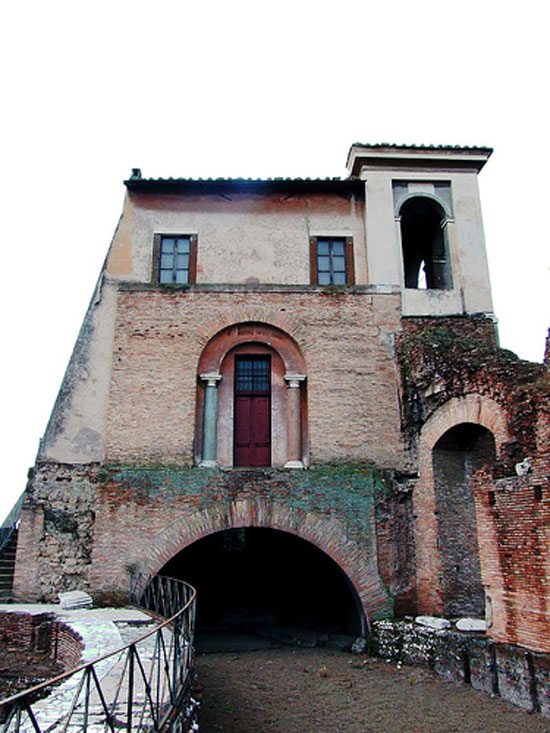
House of Augustus on Palatine Hill at Rome The Culture Concept Circle
The House of Augustus on the Palatine Hill is one of the most important monuments of the hill for historical relevance and archaeological interest.. The rooms that can be visited today are preceded by an environment covered by a barrel vault and occupied by a ramp. Although it is only a passageway, the vault is adorned with frescoes with coffered patterns and the walls have decorations.

, Room of the Masks, House of Augustus, Rome, 27 BCE. Image Source
House of Augustus When walking the streets of Rome, don't forget to check out the House of Augustus, a fascinating place where history and legend meet. Thought to be the Emperor Augustus's main residence, it sits on the mythical Palatine Hill where, according to legend, she-wolf Lupa suckled Romulus, the founder of Rome. Read More Additional Info

Guide to the House of Augustus on Palatine Hill, with Rome's Best
The House of Augustus. Octavian was born on the Palatine Hill in 63 BCE and here he decided to erect his residence. This led to the hill being used as an imperial residence continuously until the fall of the empire. The house, which had many phases of life until the Flavian era, was divided into an official area, connected with the temple.

bensozia The House of Augustus
Tue 09 Nov 2021. Mythical birthplace of Rome and home to the ancient emperors, the Palatine Hill plays a vital role in the story of the Eternal City. But hidden amongst the ruins of the massive imperial palaces built here by a series of rulers intent on showing their absolute power are other, more intimate testaments to the rise of Rome. This.

New Opening at ‘Caesar’s Palace’ The House of Augustus Walks of
Rome's first emperor Augustus built his residence, the House of Augustus, on Palatine Hill. This marked the hill's transition from a residential area to an imperial seat.. House of Augustus. For nearly 2,000 years, the House of Augustus on Palatine Hill lay hidden. Archaeologists only discovered the ancient home in the 1960s.
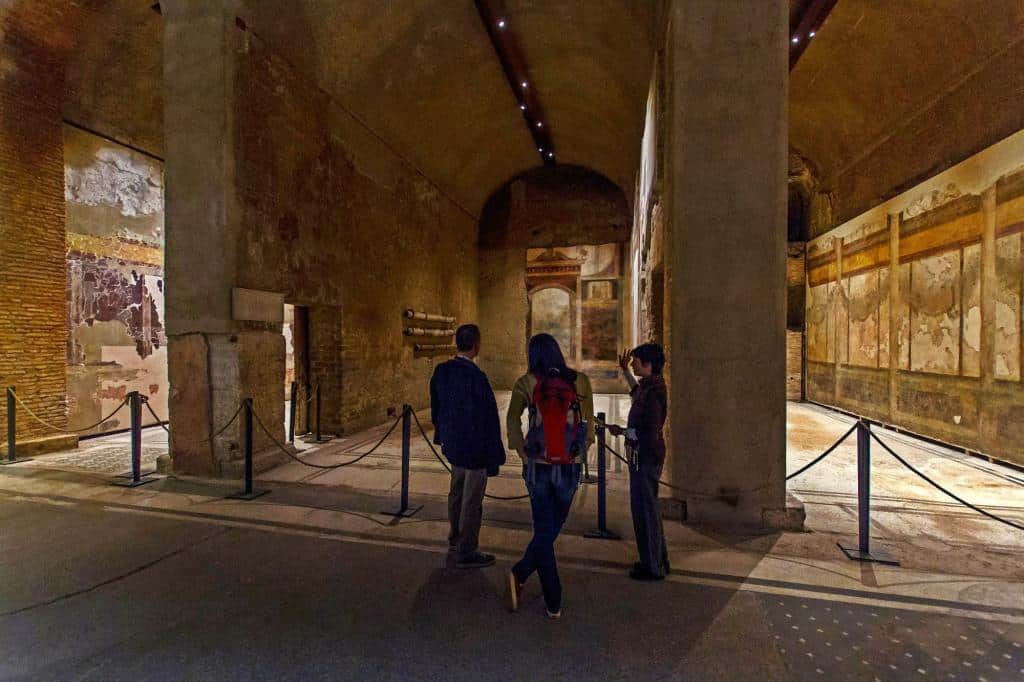
House of Augustus, Colosseum and Roman Forum Guided Tour Colosseum
House of Augustus 193 reviews #210 of 2,410 things to do in Rome Historic SitesAncient Ruins Write a review About Duration: < 1 hour Suggest edits to improve what we show. Improve this listing Tours & experiences Explore different ways to experience this place. See options All photos (226) Plan your visit
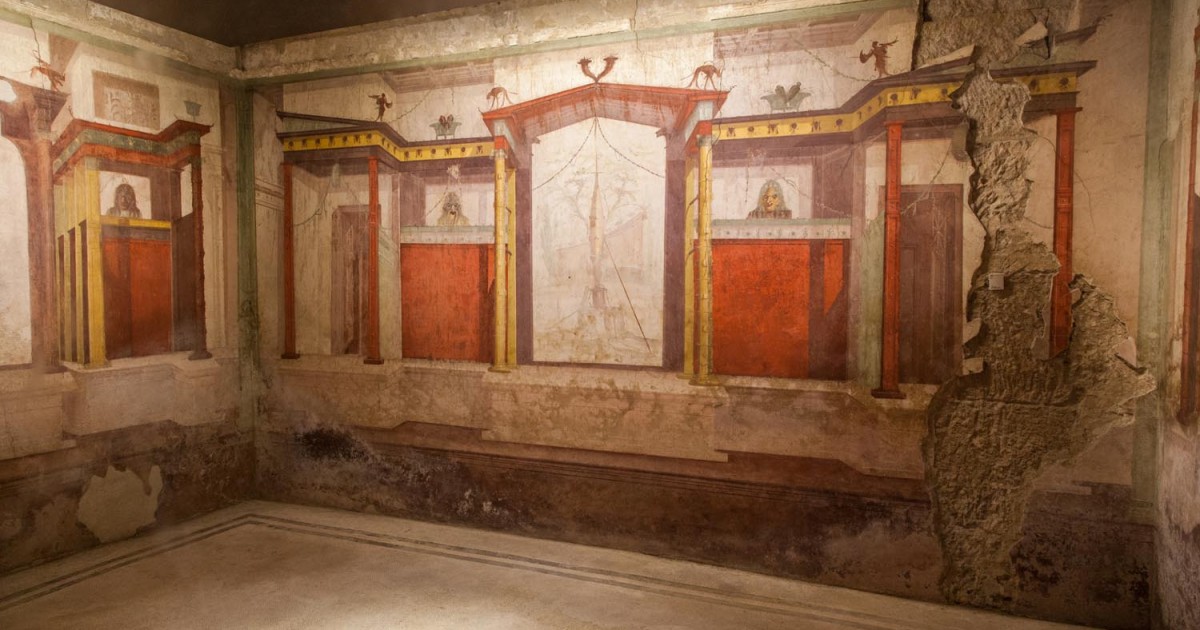
The House of Augustus and the House of Livia Through Eternity Tours
The House of Augustus was the first imperial palace built on the Palatine Hill of Rome and visitors can still see its ruins. Wagner Santos de Almeida / Shutterstock The House of Augustus, or the Domus Augustea in Rome Summary The House of Augustus, located on Palatine Hill near the Colosseum and Roman Forum, was the main home of Emperor Augustus.

This is a reconstruction of the House of Augustus (Domus Augustus) in
What is the House of Augustus? It is the house of the first emperor of Rome, Augustus. He was emperor from the year 27 BC until 14 AD and he established his residency on the Palatine hill. Today, when you visit the Palatine hill (inside the Colosseum Archaeological Park) you can enter Augustus' house.
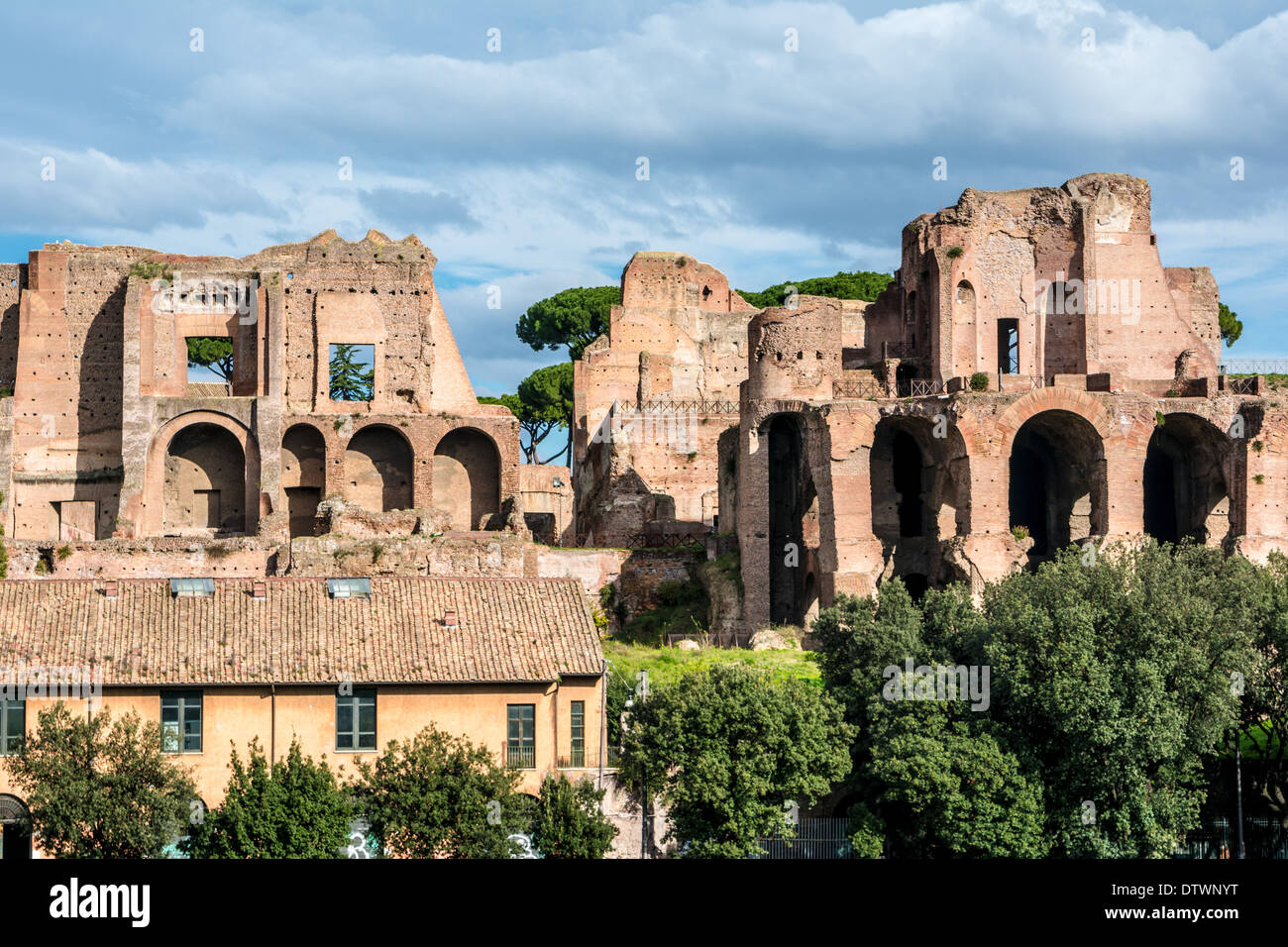
House of augustus rome hires stock photography and images Alamy
The House of Augustus, or the Domus Augusti (not to be confused with the Domus Augustana), is situated on the Palatine Hill in Rome, Italy. This house has been identified as the primary place of residence for the emperor Augustus ( r. 27 BC - AD 14 ). [1]

Guide to the House of Augustus on Palatine Hill, with Rome's Best
This important house, the Domus Augusti, which incorporated part of the earlier Domus of Quintus Hortensius (Vell. Pat. II.81 | Trans.), must have contained important gardens. Yet excavations carried out in the 1960s, although identifying remains as the house of the first [princeps]https://en.wikip
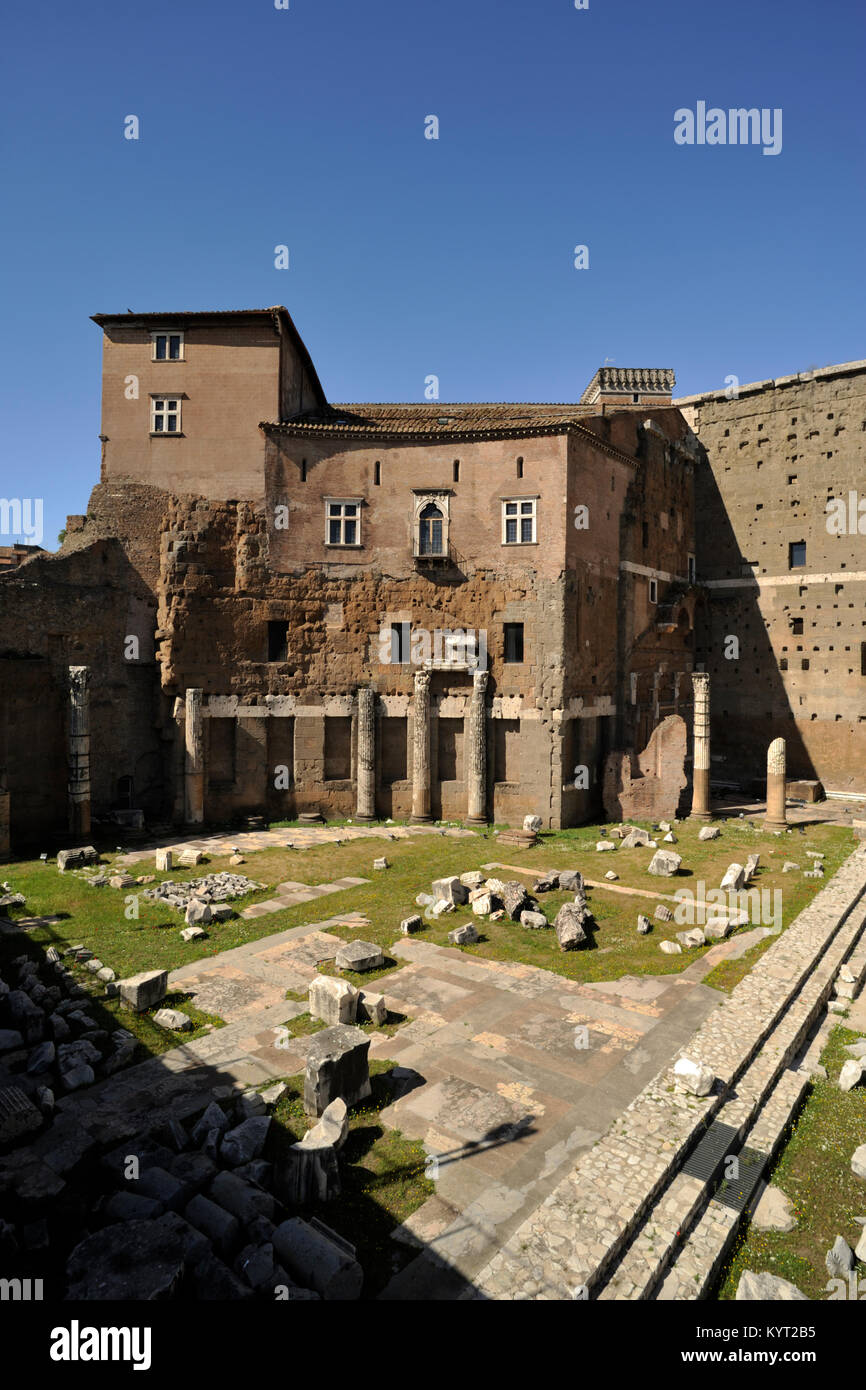
House of augustus, rome hires stock photography and images Alamy
House of Augustus (Casa di Augusto) Tours Via di San Gregorio 30, Rome, Lazio, 00186 Tours & Tickets When are you traveling? Leave the crowds behind in the Roman Forum and explore Caesar's Palace on this VIP tour.
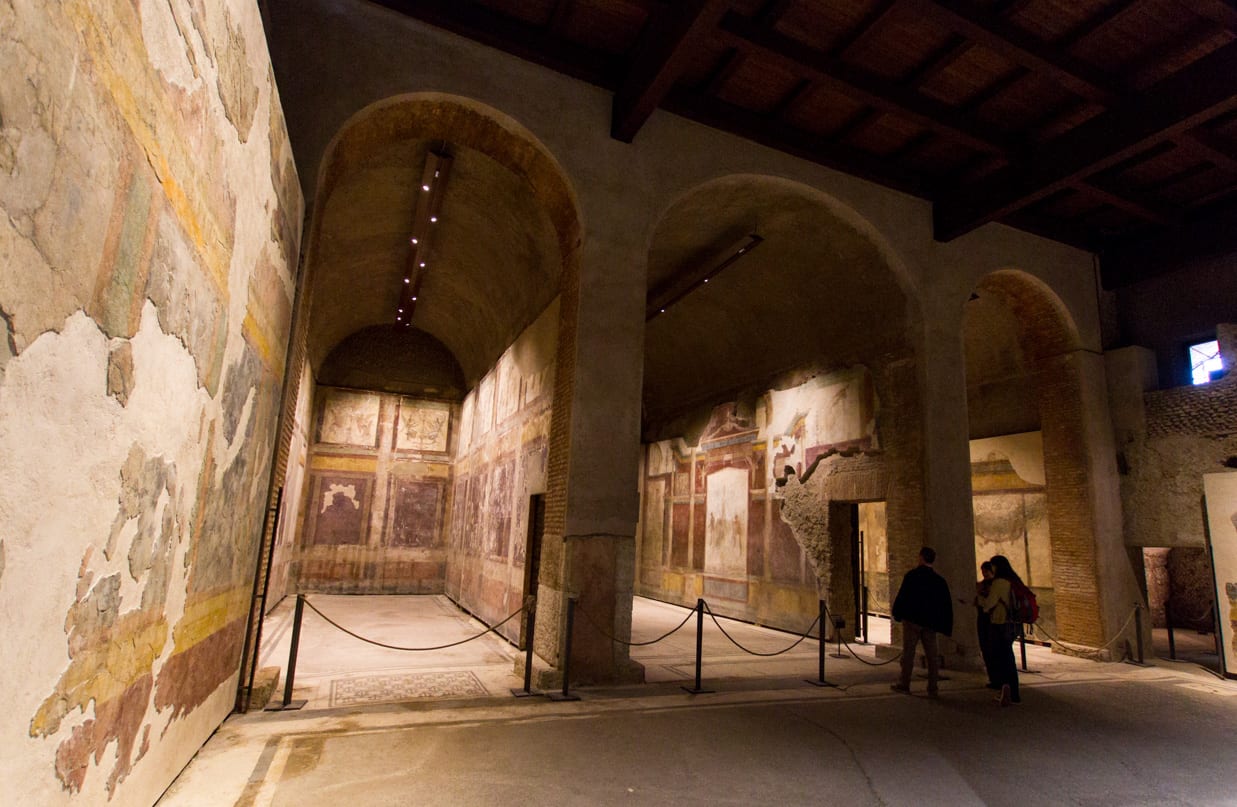
Caesar's Palace / House of Augustus Blog Walks of Italy
Pinterest ruins of the House of Augustus Here's my guide to visiting the ruins of the House of Augustus on Palatine Hill in Rome Italy. The House of Augustus was the home of Rome's first emperor Augustus. It stands as a symbol of the transition of Rome from a republic to an imperial empire.
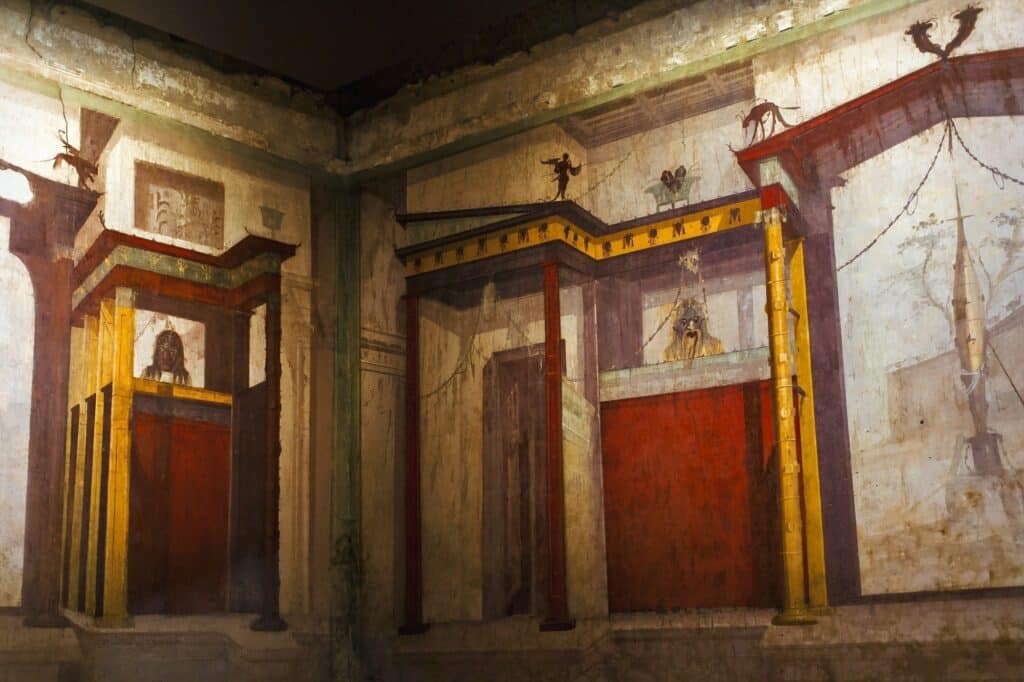
House of Augustus, Colosseum and Roman Forum Guided Tour Colosseum
The Palatine hill preserves the remains of Iron Age settlements connected with the earliest core of the city of Rome. The hill was home to important civic cults, including the Magna Mater (Cybele) and, between the 2nd and 1st centuries BC, it became the residential district of the Roman aristocracy, with elegant houses characterised by exceptional painted and paved decorations, such as those.

When in Rome… visiting the House of Augustus on the Palatine Hill
Overview Tours & Tickets The Basics Roman Emperor Augustus built his opulent Domus Augusti (or Augustus' House) adjacent to the Temple of Apollo on Palatine Hill and decorated the inside with sumptuous frescoes that can still be seen during a private tour of the palace today.
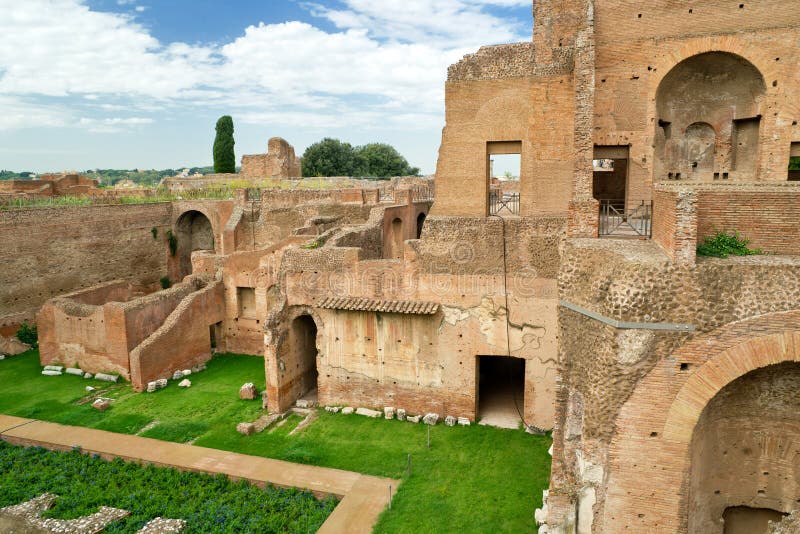
House of Augustus at the Palatine Hill in Rome Stock Photo Image of
written by Carole Raddato In 2014 Rome celebrated the 2000th anniversary of Emperor Augustus' death. To commemorate the date, a series of special events and openings were launched in the Italian capital, including the opening of new parts of the 'House of Augustus' and 'House of Livia' on the Palatine Hill.

Guide to the House of Augustus on Palatine Hill, with Rome's Best
The House of Augustus is symbolic of a crucial transition in Roman history, when the Palatine transformed from a residential plateau into the seat of imperial power. The layout, wall paintings, and mosaics illuminate the life of the emperor and provide information about the contemporary Roman period.